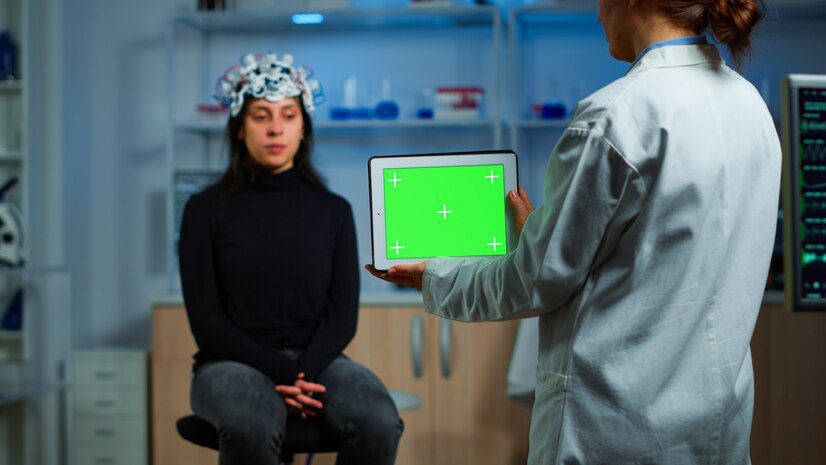In our increasingly digital world, the intersection of technology and mental health has become a focal point for individuals seeking support and well-being. From mindfulness apps to teletherapy services, an array of tech solutions aims to enhance mental health. Navigating the realm of digital well-being involves understanding these technologies, their benefits, and potential challenges. In this exploration of tech and mental health solutions, we’ll delve into the landscape of digital well-being and how technology can be harnessed to support mental health.
Mindfulness and Meditation Apps
Mindfulness and meditation apps have surged in popularity, offering accessible tools for managing stress and fostering mental clarity. Platforms like Headspace and Calm provide guided meditation sessions, sleep aids, and stress reduction exercises. Incorporating these apps into daily routines can contribute to improved mental well-being by promoting relaxation and mindfulness practices.
Teletherapy and Online Counseling
The rise of teletherapy and online counseling services has democratized access to mental health support. Platforms such as BetterHelp and Talkspace connect individuals with licensed therapists through video calls, messaging, or phone sessions. This technology-driven approach provides flexibility and convenience, especially for those who may face barriers to in-person counseling.
Wellness Wearables and Fitness Trackers
Wellness wearables and fitness trackers go beyond physical health monitoring, incorporating features that support mental well-being. Devices like the Apple Watch and Fitbit often include mindfulness apps, stress tracking, and guided breathing exercises. These wearables offer insights into the correlation between physical activity and mental health, encouraging users to maintain a balanced lifestyle with tech and mental health solutions.
Digital Journaling and Mood Tracking
Digital journaling and mood-tracking apps enable individuals to document their thoughts, emotions, and daily experiences. Apps like Day One and Moodpath provide a platform for self-reflection and mood analysis. Tracking emotional patterns can enhance self-awareness and help individuals identify potential triggers or sources of stress, fostering a proactive approach to mental well-being.
Read More: The Latest Technological Innovations Making Waves in 2023
Virtual Reality (VR) Therapies
Virtual reality therapies are emerging as innovative tools in mental health treatment. VR platforms create immersive environments for exposure therapy, relaxation exercises, and stress reduction. While still evolving, VR therapies show promise in addressing conditions such as anxiety, PTSD, and phobias by providing controlled and customizable simulations.
Digital Detox and Screen Time Management Apps
While technology offers solutions for mental health, it also introduces challenges, such as digital overwhelm and screen addiction. Digital detox and screen time management apps, including Forest and Moment, help users regain control over their digital habits. These tools as mental health solutions encourage breaks from screens, promoting a healthier balance between the digital and physical worlds.
Artificial Intelligence (AI) in Mental Health Support
AI is being harnessed to enhance mental health support through chatbots and virtual assistants. Apps like Woebot use AI algorithms to engage users in conversational interventions based on principles of cognitive-behavioral therapy. While not a replacement for human interaction, AI-driven solutions can complement traditional therapies and provide immediate support.
Educational Mental Health Apps
Educational mental health apps offer resources and information to empower individuals in managing their mental well-being. Apps like PsyberGuide provide reviews and information on mental health apps, guiding users toward evidence-based resources. These educational tools promote awareness, reduce stigma, and help individuals make informed choices about their mental health journey.
Community Support Platforms
Online community support platforms, such as 7 Cups and Supportive, connect individuals facing similar mental health challenges. These platforms provide a space for peer support, enabling users to share experiences, seek advice, and foster a sense of community to practice mental health solutions. The power of shared narratives contributes to reducing isolation and promoting understanding.
Gamification for Mental Wellness
Gamification principles are increasingly applied to mental wellness apps, turning self-improvement into an engaging and rewarding experience. Apps like Happify and SuperBetter incorporate game-like elements to motivate users in building resilience, managing stress, and cultivating positive habits. Gamified approaches can make the journey toward mental well-being more enjoyable and sustainable.
Challenges and Considerations
While tech solutions offer unprecedented support for mental health, challenges and considerations must be acknowledged. Privacy concerns, the need for evidence-based practices, and potential overreliance on digital tools are aspects that require careful consideration. It’s essential to strike a balance between tech and wellness for well-being and to recognize its limitations.
Conclusion
Navigating the digital well-being landscape involves adopting a holistic approach that integrates technology with mindful and intentional use. Embracing digital tools for mental health solutions and support can enhance accessibility, provide valuable resources, and encourage a proactive approach to well-being. By leveraging the intersection of technology and mental health, individuals can empower themselves on their journey toward resilience, self-awareness, and overall mental well-being. It’s a transformative era where the fusion of human and technological capabilities creates opportunities for a more connected and supported mental health experience.







